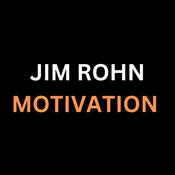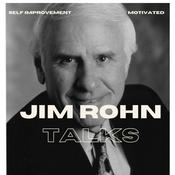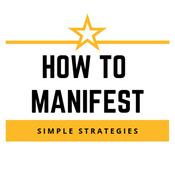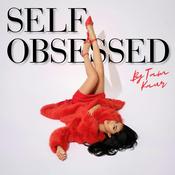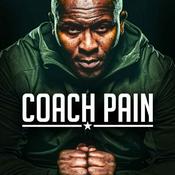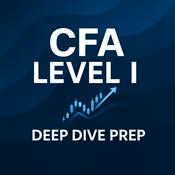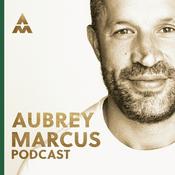419 episodes
WVC Vegas + Brainsmarts Chaos: We Accidentally Ran Into Caitlin’s Boss … Then Recorded a Podcast with Him LIVE in Vegas
2026/2/13 | 44 mins.Season one of Brainsmarts goes out with a bang — and a little bit of chaos — LIVE from the floor of the Mandalay Bay Resort and Casino during Western Veterinary Conference.
Hosts Caitlin Palmar and Clay Palmar literally run into Caitlin’s former (and current) employer, Dr. Dean, on the way to Las Vegas and decide the only logical next step is to put him on the mic.
The season finale is part reunion, part career reflection, and part “how did this even happen?” — plus a look back at the most unforgettable moments from season one. From the iconic Canadian This-or-That episode with Shannon Gervais, to fashion hot takes and trivia with Chicago’s own Dr. Thomas Vega, to parasite horror stories with Dr. Hannah Jordan, it’s the perfect send-off before the next chapter.
Recorded live. Slightly unhinged. Totally Brainsmarts.
#wvcvegas #veterinarypodcast #veterinarymedicineShe Runs RECOVER—But Can She Survive This Quiz? Dr. Jamie Burkitt on Brain Smarts
2026/1/28 | 29 mins.Brain Smarts by Vet Candy is back with another fast-paced, laugh-out-loud challenge quiz show where veterinary news meets comedian chaos. Hosted by the hilarious duo Clay and Caitlin Palmer, this week’s episode features a true powerhouse in emergency and critical care: Dr. Jamie Burkitt, DVM, DACVECC.
Dr. Burkitt is a WVC headliner, Professor of Clinical Small Animal Emergency and Critical Care at UC Davis, and a key leader in the field as Co-Chair of Guidelines Development and Executive Committee member of the RECOVER Initiative. Translation: if anyone knows their stuff under pressure, it’s her.
In this episode, Dr. Burkitt takes on the Brain Smarts challenge quiz, tackling the latest veterinary news, hot topics, and curveball questions—all while keeping up with Clay and Caitlin’s rapid-fire humor. It’s smart, it’s competitive, and it’s surprisingly fun.
Brought to you by WVC Vegas, this episode is your perfect warm-up for the biggest veterinary event of the year.
Listen now—and we’ll see you in Vegas.
#wvcvegas #brainsmarts #veterinary #vetmed #veterinarypodcast- Warning: Listening to Vet Candy’s Brain Smarts may result in spontaneous laughter, improved trivia skills, and a slight crush on hosts Clay and Caitlin Palmer.
It’s like a news show... if the news show had a sense of humor and a caffeine problem.
This week's guest is Aaryn DuBose.
Meet Aaryn DuBose, a beacon of inspiration and aspiration, whose journey through the corridors of veterinary medicine is not just about healing animals but also about breaking barriers and lighting the way for others to follow.
Currently enrolled at TUCVM (Tuskegee University College of Veterinary Medicine), Aaryn holds multiple leadership roles with remarkable poise. Not only does he manage the core lab in the biomedical research department, but he also serves as the Class of 2027 president, the vice president-elect for SAVMA (Student American Veterinary Medical Association), and the vice president of the Veterinary Surgery Club.
💉 Brought to you by Zoetis, maker of Solensia.
🔗 SolensiaVetTeam.com - Need a break from real life?
Tune in to Vet Candy’s Brain Smarts, where Clay and Caitlin Palmer teach you real science between ridiculous jokes and questionable impersonations.
You’ll laugh. You’ll learn. You’ll wonder how this show got approved.
Tonight’s guest is the definition of doing the most—in the best way possible.
Dasia Harris is a second-year veterinary student at NC State, a military reservist, an exotic animal enthusiast, and somehow also a full-time motivator on Instagram and TikTok. She’s breaking barriers, busting myths, and proving that there’s no single way to succeed in veterinary medicine.
Dasia doesn’t try to fit the mold.
She smashes it and then builds her own.
💉 Brought to you by Zoetis, maker of Solensia.
🔗 SolensiaVetTeam.com
#veterinary #veterinarymedicine #veterinarypodcast - Tired of dry science talk? So were we.
That’s why Vet Candy’s Brain Smarts brings you hilarious hosts Clay and Caitlin Palmer—two vet pros who somehow make brain cells giggle. Your neurons will thank you. Or at least stop judging you.
Today’s guest is Deacon Lajala, a Hawaiian native who crossed oceans to take on veterinary school at the Royal Veterinary College. Can he beat the challenge and win Brain Smarts? Tune in to hear!
💉 Brought to you by Zoetis, maker of Solensia.
🔗 SolensiaVetTeam.com
#veterinarymedicine #vetmed #animalhealth
More Education podcasts
Trending Education podcasts
About Vet Candy – Veterinary Lifestyle, News & Learning
Vet Candy is revolutionizing how vet professionals stay informed and inspired. We mix must-know news with trendsetting lifestyle content and digestible education - because your career deserves to be as dynamic as your passion for animals. Get industry breakthroughs, expert insights, vet comedy, wellness tips, and authentic shows about real clinic life. Whether you want deep dives or quick hits, we’re your go-to for everything that makes vet medicine exciting. Join our wild ride - your whole veterinary community is here.
Podcast websiteListen to Vet Candy – Veterinary Lifestyle, News & Learning, The Mel Robbins Podcast and many other podcasts from around the world with the radio.net app
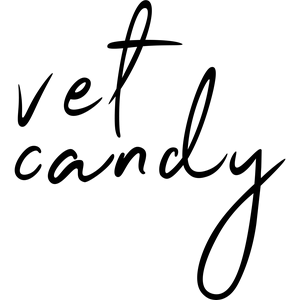
Get the free radio.net app
- Stations and podcasts to bookmark
- Stream via Wi-Fi or Bluetooth
- Supports Carplay & Android Auto
- Many other app features
Get the free radio.net app
- Stations and podcasts to bookmark
- Stream via Wi-Fi or Bluetooth
- Supports Carplay & Android Auto
- Many other app features


Vet Candy – Veterinary Lifestyle, News & Learning
Scan code,
download the app,
start listening.
download the app,
start listening.



